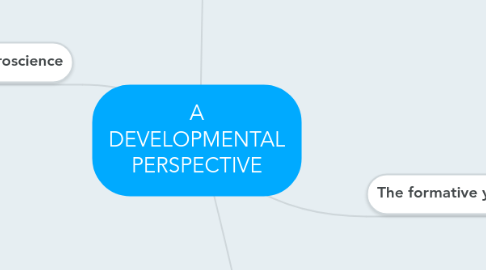A DEVELOPMENTAL PERSPECTIVE
by azucena pescina


1. Implications of neuroscience
1.1. Children’s physical growth is also very rapid during the early years, but physical maturation is a much more extended process compared with the changes taking place within the nervous system.
1.2. So human neurological development requires basic elements consistent with secure, stimulating and responsive care, but does not make precise prescriptions. It appears that optimal human development can be achieved through a wide range of family settings.
2. A time of vulnerability…and resilience?
2.1. The concept of resilience has been widely applied to circumstances where children appear better able to cope with stress than their more vulnerable peers.
2.2. It is clear that well-resourced ECCE as part of a comprehensive programme of support for children and families can be a very significant ‘protective factor’ helping young children, parents and other caregivers cope with adversities.
3. The formative years of life
3.1. That the early years are formative of children’s long-term prospects is one of the most ancient, enduring and influential themes shaping early childhood policy.
3.2. The first detailed systematic observations of infant and child development were carried out within a scientific frame in the late nineteenth century, and this field of research was soon firmly established and increasingly influential throughout the twentieth century.
3.3. Developmental perspectives encompass the following themes:
3.3.1. • Young children’s physical, mental, social and emotional functioning is distinctively different from that of older children and adults, comprising distinctive phases, stages and milestones of development.
3.3.2. • Young children’s development is especially sensitive to negative impacts from early malnutrition, deprivation of care and responsive parenting, or disturbed and distorted treatment
3.3.3. • Where children’s basic needs are not met, or if they are maltreated or abused, the repercussions are often felt throughout childhood and into the adult years.
